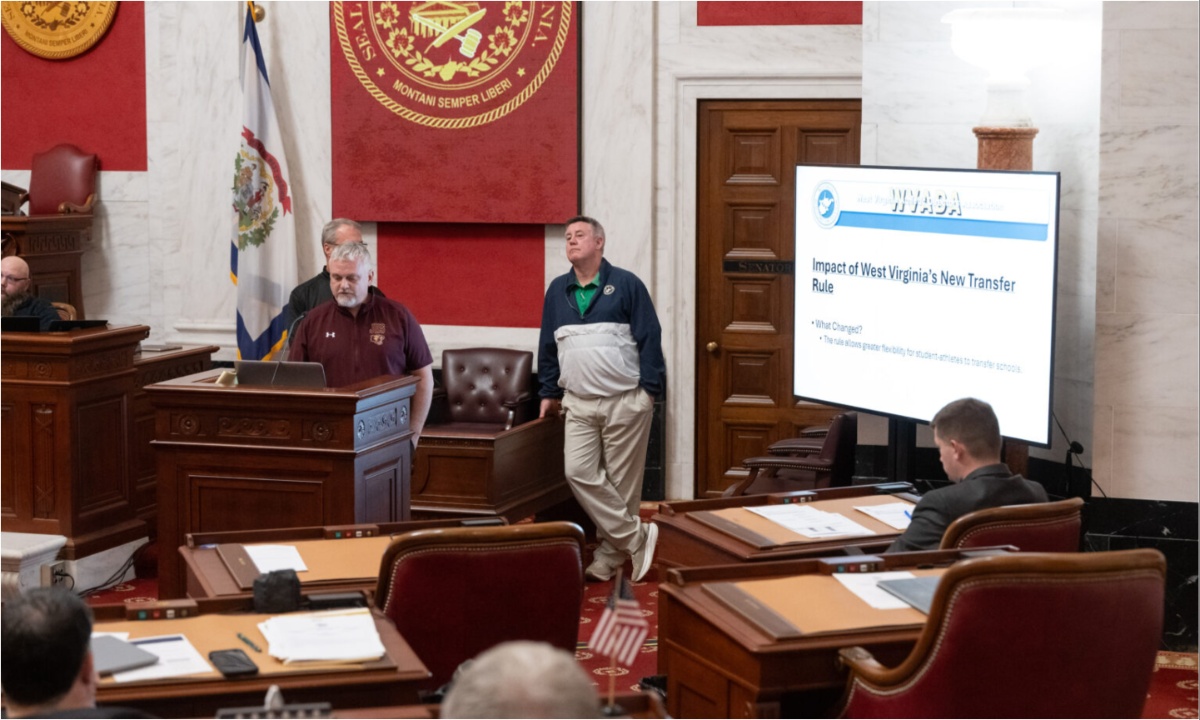Coaches and athletic leaders in West Virginia are calling on lawmakers to introduce restrictions on the state’s controversial high school sports transfer rule. The 2023 law permits student-athletes to change schools once during their high school years without needing to change residency, allowing them to play immediately. However, this rule has led to concerns about its impact on the state’s sports programs, particularly regarding lopsided football scores, increased injuries, and the potential strain on community fundraising for school athletics.
David Viands, president of the West Virginia Athletic Directors Association, voiced concerns that the rule disrupts the community aspects of high school sports. He explained that the ability to transfer without residency requirements displaces long-time students, impacting the cohesion and stability of local athletic programs. Viands emphasized that the law’s long-term effects, which are hard to quantify, need to be carefully evaluated. His organization is urging lawmakers to explore potential solutions to mitigate these consequences.

The number of high school transfers has surged under the new rule, with 433 athletes transferring during the 2024 school year alone, a dramatic increase compared to previous years. These mid-season transfers, particularly before major sports seasons like basketball, have raised alarms among athletic directors. Viands highlighted that these transfers often occur in urban areas, such as Charleston and Morgantown, and can leave rural schools struggling with a less experienced roster of younger athletes while their older players move to other schools for sports opportunities.
While Governor Jim Justice and some lawmakers, including Del. Wayne Clark, have called for revisiting the rule, efforts to amend the law last year failed. Some legislators, like Del. Jimmy Willis, argue that students should have the freedom to choose where they play, especially if they are working towards college athletic scholarships. However, Viands pointed out that fewer than 2% of high school athletes receive such scholarships, raising questions about whether the current transfer system is truly benefiting the majority of students.
Athletic directors are now hoping that lawmakers will take action in the upcoming legislative session, which begins on February 12. Jamie Tallman, an athletic director in Grant County, expressed support for a proposed bill that would allow only rising freshmen and sophomores to transfer, with a one-year eligibility penalty for upperclassmen. Viands echoed this sentiment, advocating for measures to slow the high numbers of upperclassmen transferring for athletic reasons, suggesting that some guardrails need to be implemented to address the issue.







